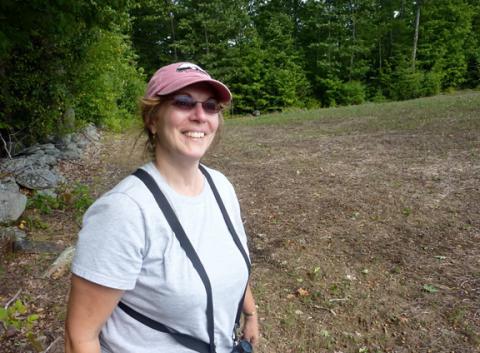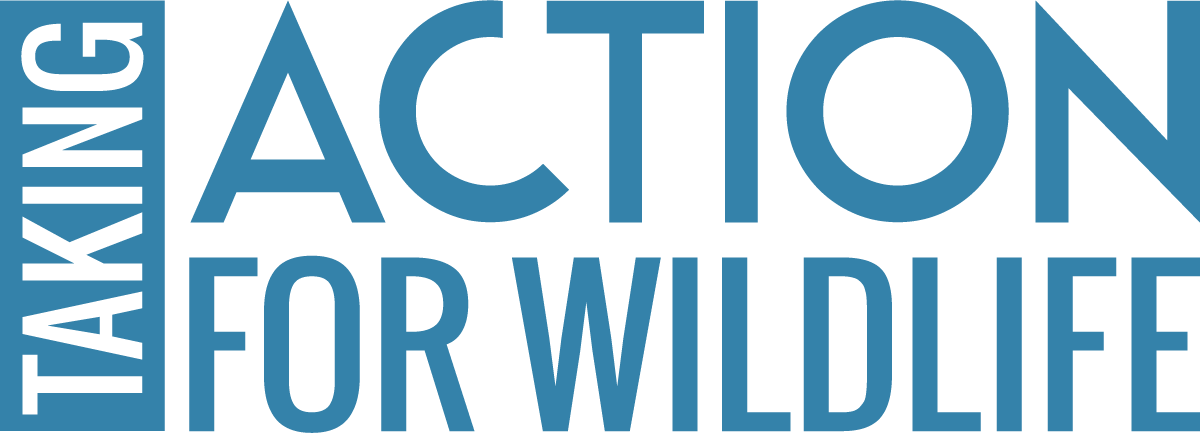
Betsy Hardwick is Chair of the Francestown Conservation Commission and a member of the Select Board. For the past eleven years, in addition to managing her family’s 30 acre property, she has worked to increase conservation land in her town and involve town residents in those lands through education, events and frequent communication. Much of this work has included enhancing and protecting valuable wildlife habitats. Betsy has lived in Francestown all her life, as have generations of family before her. It’s not surprising, then, to hear her say, “I have a very strong connection to the place. I love nature. I’d as soon be in the woods as anywhere.”
GETTING INVOLVED
Betsy initially got involved in conservation work somewhat by chance, but took the opportunity to do something about a need she’d identified. “In 1998, I mentioned to a Select Board member that I was interested in volunteering for a town’s organization. Shortly after, the Select Board asked me to join the Conservation Commission, which I did. Before this, I had noticed that the town had about 800 acres of conservation land but people in town weren’t very aware of the properties. I wanted to change this and worked with others on the Conservation Commission to increase the activity on and awareness of the conservation lands. We did a number of things since then – wrote grants, put up duck boxes in the town forests and planted mast-producing shrubs in old log landings with seedlings from the State Forest Nursery. The Conservation Commission also planted a number of crabapple trees for wildlife and created two fields totaling about 4 acres to benefit species that require such habitat. “We created trails, a parking area, a kiosk and a boardwalk through a black gum swamp and conducted several timber sales. Income from timber harvests goes into the Conservation Fund and has been used for management activities including wildlife habitat improvement projects as well as to conserve additional land.”
HOW THEY DO IT
The Francestown Conservation Commission works closely with the private Francestown Land Trust on land conservation, outreach and education. The roles of the groups vary depending on the project. Sometimes the Conservation Commission pays the project costs, with the Land Trust holding conservation easements and raising additional funding to defray town expenses, Other times the Town accepts an executory interest on an easement allowing them to contribute funds towards a Land Trust project. They have two joint projects in progress currently. In one, the Town will acquire property abutting existing conservation lands. In a second project, the Conservation Commission will acquire land with about a mile of frontage on Rand Brook and the Piscataquog River. This project will protect important river and adjacent habitats that support a number of species of concern listed in the NH Wildlife Action Plan, including 29 invertebrate, fish, reptile and bird species, many of which likely occupy this section of river. The Land Trust will hold a conservation easement on both.
HELP WAS ON THE WAY
Betsy and the Francestown Conservation Commission didn’t do all this without help. They hired a consulting forester, for example, to oversee forest management planning and actions. They also got assistance from UNH Cooperative Extension through its Wildlife Specialist, Matt Tarr, and from NH Fish & Game biologist Ted Walski. They sought and received financial assistance – grants for wildlife habitat improvements from the federal Wildlife Habitats Incentive Program and from the NH Fish & Game Department. They also were awarded a grant from the NH Trails Bureau for trail creation on town land.
SEEING THE RESULTS OF THEIR LABOR
Following the habitat work in the town forest, Betsy says, she and others have noticed an increase in the number of species and individual animals using the land. Before, she says, people would report general sparse wildlife presence. Now, wildlife are noticeably abundant, including turkey, bear and even bobcat. Visitors to the town forest now often mention the abundance of wildlife there. Reflecting on the results of her years working on town lands, Betsy says one of the most rewarding parts is “knowing these places I love to go and see wildlife will continue to be there. I can see the results.”
A LEARNING EXPERIENCE
Betsy and the Francestown Conservation Commission have learned a lot about how to get things done. She feels that a key element in the success of the Conservation Commission has been strong communication with landowners, town residents and community leaders. “We wrote monthly articles for the town newsletter and communicated in as many ways as we could, including spreading the word at town meeting. I led after school hikes on town and other lands for kids and parents. We sponsored workshops and a speakers program and worked with the library and Francestown Land Trust on these. Now, people use the town lands and support conservation. Without that communication, we couldn’t have accomplished what we did.” Betsy feels that fostering a strong connection to the land is equally important in building community support for conservation and that the guided hikes and the other outreach activities mentioned above have helped strengthen the connection to the land for many Francestown residents, deepening their commitment to it.
Story by Frank Mitchell, UNH Cooperative Extension


